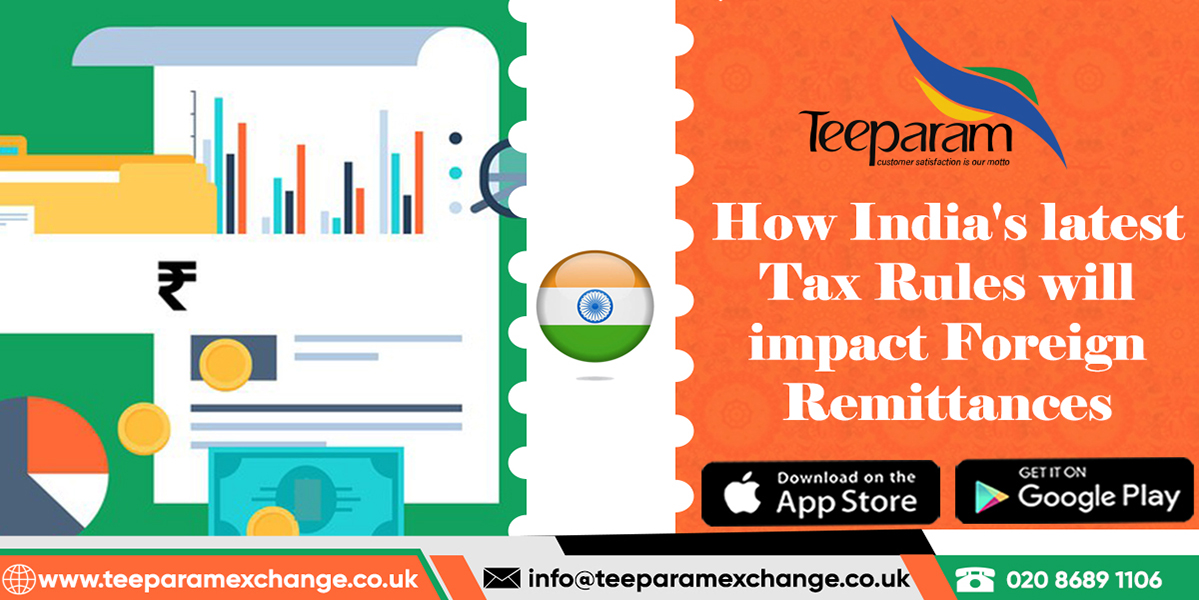
How India's latest Tax Rules will impact Foreign Remittances?
Tax rules related to foreign remittances can influence various aspects, such as tax withholding rates, reporting requirements, and eligibility for certain exemptions or deductions.
As of June 28, 2023, the Ministry of Finance in India has implemented new tax rules that will significantly impact foreign remittances. The revisions address the Tax Collection at Source (TCS) on payments under the Liberalised Remittance Scheme (LRS) and on overseas tour program packages. These changes aim to simplify the taxation process and ensure compliance with foreign remittance regulations.
No TCS on Remittances up to Rs 7 Lakh
The most notable change is that there will be no TCS on foreign remittances of up to Rs 7 lakh per financial year for all categories of LRS payments. This threshold applies to all modes of payment, regardless of the purpose of the remittance. Individuals can now remit up to Rs 7 lakh abroad without incurring any TCS, providing a significant relief to those making smaller remittances.
TCS on Overseas Tour Packages
For individuals availing overseas tour packages, a TCS of 5% will be levied on amounts up to Rs 7 lakh per individual per annum. This tax applies to all tour program packages, and the rate remains the same regardless of the payment mode used.
Increased TCS Rate from October 1, 2023
From October 1, 2023, the TCS rate on foreign remittances through LRS will be increased to 20% from the existing 5%, except in specific cases. The new rate was initially scheduled to come into effect from July 1, 2023, but it was postponed to allow individuals and businesses ample time to prepare for the changes.
Exceptions for Educational Expenses
To incentivize educational pursuits abroad, the new rules exempt foreign remittances below Rs 7 lakh spent on educational expenses from TCS. However, remittances above Rs 7 lakh spent on educational purposes that are obtained as a loan from an approved financial institution will attract a TCS of 0.5%. Remittances beyond Rs 7 lakh spent on educational purposes without a loan will incur a TCS of 5%.
Medical Treatment Expenses
Foreign remittances for medical treatment exceeding Rs 7 lakh will be subject to a TCS of 5%. This measure aims to regulate overseas medical expenditures and ensure the appropriate collection of taxes.
No TCS on International Credit Card Payments
Initially, the government announced a TCS of 20% on individual payments above Rs 7 lakh made through international debit and credit cards, effective from July 1, 2023. However, the implementation was postponed. Credit card payments will now be outside the ambit of LRS, and transactions using international credit cards while overseas will not be counted as LRS, thereby exempting them from TCS.
What is Liberalized Remittance Scheme in India?
India's Liberalized Remittance Scheme (LRS) is a progressive initiative introduced by the Reserve Bank of India (RBI) to facilitate the seamless transfer of funds from resident individuals to overseas destinations. Under the LRS, individuals are allowed to remit up to US$250,000 per financial year (April to March) for various permissible transactions involving both current and capital accounts, or a combination of both. This scheme simplifies the process of outbound remittances and empowers individuals to conduct international transactions with ease and flexibility.
All you need to know about the LRS
The Liberalized Remittance Scheme (LRS) introduced by the Reserve Bank of India allows resident individuals to transfer funds abroad for various permissible transactions. Here are some key points about the LRS:
Currency for Remittances:
Remittances can be made in any freely convertible foreign currency.
Number of Remittances:
There is no limit on the number of transactions within a fiscal year, but the total amount remitted through all sources should not exceed the LRS limit.
Eligibility:
Resident individuals are eligible to use the LRS scheme, but it is not available to corporates, partnerships, trusts, etc. Minors require their guardian's countersigned declaration.
PAN Requirement:
Resident individuals must provide their PAN for all LRS transactions through authorized persons.
Prohibited Transactions:
Prohibited remittances include specific items in Schedule-I and remittances for trading in foreign exchange, among others.
Permissible Current Account Transactions:
Current account transactions allowed include private visits, gifts to NRIs/PIOs, emigration, medical treatment, studies abroad, etc.
Permissible Capital Account Transactions:
Capital account transactions include buying property abroad, investing in overseas securities, and establishing WOS/JVs abroad.
Repatriation of Investment Income:
Investors can reinvest income generated from investments without repatriation obligation, but unused foreign exchange must be repatriated within 180 days.
Consolidation of Remittances:
Remittances can be consolidated for family members under certain conditions.
Compliance Requirements:
The Authorized Dealer must verify the nature of the transaction based on the remitter's declaration. The remitter must designate an AD branch for all capital account remittances and comply with due diligence requirements.
The LRS scheme provides a convenient and accessible way for individuals to conduct international transactions while adhering to the specified guidelines and compliance requirements.
India's latest tax rules on foreign remittances seek to strike a balance between easing the tax burden for smaller remittances while ensuring that larger foreign transfers are appropriately taxed. The increased TCS rate from October 1, 2023, underscores the government's efforts to streamline tax collection and improve compliance. Individuals and businesses involved in foreign remittances should remain vigilant about the latest tax regulations and consider consulting tax professionals to navigate these changes effectively.